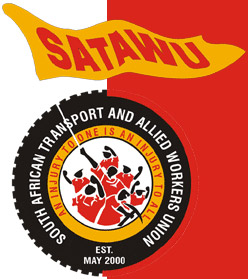Organized labor has played a pivotal role in shaping the industrial landscape of South Africa. Trade unions have emerged as powerful advocates for workers’ rights, fostering better wages, improved working conditions, and increased worker protections. However, their influence on businesses remains a complex and nuanced issue, requiring careful examination to fully understand its implications.

Image: www.inminds.com
Understanding Trade Unions and Their Role
Trade unions are worker organizations designed to defend and advance the interests of their members. By collectively bargaining on behalf of their constituents, unions aim to ensure fair compensation, safe working environments, and equitable treatment. In South Africa, trade unions have historically been instrumental in promoting social justice and challenging workplace exploitation.
Benefits of Trade Unions for Businesses
Despite common misconceptions, trade unions can offer tangible benefits to businesses. Studies have shown that unionized companies tend to experience reduced staff turnover, improved productivity, and enhanced worker morale. By providing a platform for employee input and representation, unions can foster a more constructive and collaborative work environment.
Increased Worker Productivity: Unionized workers often demonstrate higher levels of job satisfaction and loyalty to their employers. This can translate into increased productivity, as employees are more motivated to perform well when they feel their voices are being heard and their interests are protected.
Reduced Absenteeism and Turnover: Fair wages, comprehensive benefits, and healthy work-life balance are key factors in employee retention. Trade unions actively advocate for these workplace improvements, leading to reduced absenteeism and turnover rates. This stability can save businesses significant time and resources in recruiting and training new employees.
Improved Communication and Conflict Resolution: Trade unions provide a structured channel for employee concerns to be addressed. This can prevent misunderstandings, resolve conflicts amicably, and create a more harmonious work environment. By facilitating regular dialogue between workers and management, unions can help businesses improve communication and prevent the escalation of grievances.
Challenges Faced by Businesses
While trade unions offer potential benefits, they can also present challenges to businesses. Increased labor costs, potential industrial disputes, and perceived reduced management flexibility are common concerns raised by employers.
Increased Labor Costs: Unionized workers typically negotiate higher wages and benefits packages than non-unionized workers. This can increase a company’s labor costs, especially in industries with thin profit margins.
Potential Industrial Disputes: The adversarial nature of labor negotiations can sometimes lead to strikes and other industrial action. These disruptions can disrupt operations, cause reputational damage, and result in significant financial losses.
Reduced Management Flexibility: Trade unions can limit employers’ flexibility in making certain decisions related to workforce management, such as hiring, firing, and scheduling. This can make it more difficult for businesses to adapt to changing market conditions.

Image: ditsong.org.za
Effect Of Trade Unions On Businesses In South Africa
Balancing Interests for Mutual Benefit
The relationship between trade unions and businesses in South Africa is not always straightforward. It often requires a delicate balancing act to align the interests of both parties. Yet, when this balance is achieved, unions and businesses can find common ground for mutual benefit.
Effective communication, transparent negotiation, and a willingness to compromise are crucial for maintaining a positive relationship. By working together, unions and businesses can create a work environment that is both equitable for workers and sustainable for enterprises.
Conclusion
Trade unions have had a profound impact on the business environment in South Africa. Their role in advocating for workers’ rights has undoubtedly shaped the labor market and contributed to social progress. However, the relationship between unions and businesses remains complex, presenting both benefits and challenges. By embracing open dialogue, mutual respect, and a shared commitment to finding solutions that advance both worker well-being and business success, South Africa can continue to foster a thriving and equitable work environment.






